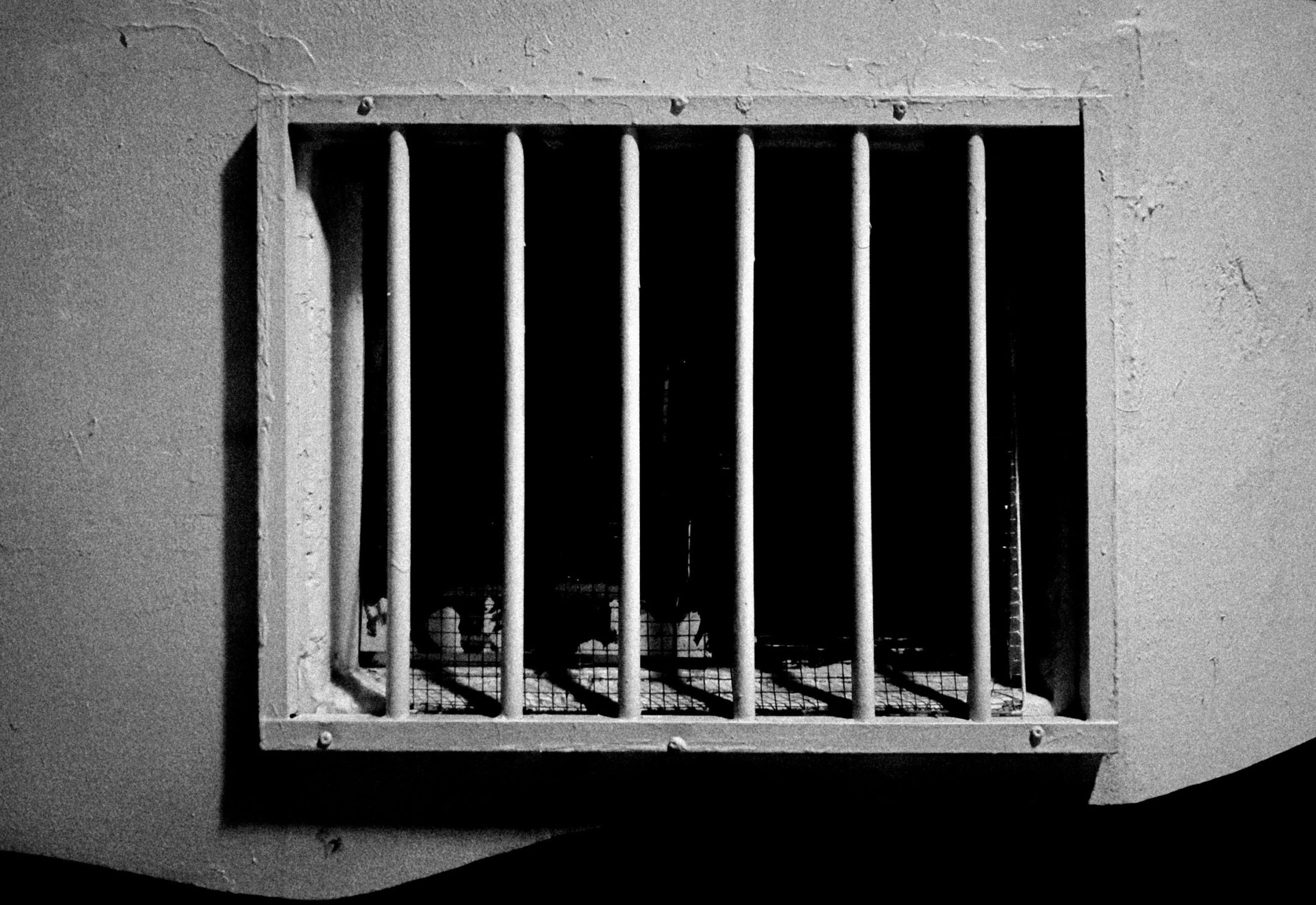news
THE MASSES DEMAND A REALISTIC AND CONSTRUCTIVE ASSESSMENT OF THE GENERAL SECRETARY’S CONDITION

A gypsy once told my mother I would reach the pinnacle of fame and fortune, but would never know happiness, and perhaps her prediction was correct.
There is never enough sleep or enough love in the world.
I remember the taste of freshly-fallen snow, the heat of the blazing open-hearth furnaces, how excited my father was the first time he saw an automobile. Life sweeps everything old, routine, and ossified from its path.
As a boy, I learned on the streets the importance of having loyal friends, a gang protecting one’s flanks and rear. I could be brave in a fight, but I also mastered the conciliatory gestures and overtures that could win over an enemy. As time went on, I would see many perish for failing to master these skills.
Before studying for my exams, I worked in a steel mill, attending meetings on how to increase workplace productivity and meet production targets. I participated in anti-delinquency campaigns, breaking up fights and confiscating weapons. Later it was my responsibility to supervise the editorial line of local newspapers, learning the right note of jubilation to strike when publicizing the Party’s triumphs. Organization and psychology were my strengths, not points of abstract doctrine.
To quote a phrase of the poet Yesenin — in my heart I never lied.
Those were times when much was possible for a man of determination with a technical education and a willingness suddenly to look the other way. Higher job positions became vacant very suddenly, and rapid upward mobility was possible for those who kept an invisible profile, never expressed opinions that had not already appeared in that day’s edition of Pravda, and were prepared to denounce friends and colleagues when there was no alternative.
Sitting on sub-committees, avoiding all signs of personal ambition, I learned who to criticize for production shortfalls, mouthing the repetitive denunciations so characteristic of the time. I drafted pledges, planned rallies, and spoke obliquely of questions and tendencies, giving speeches whose real meaning lay in which customary phrases were omitted, talking without inflection to avoid betraying my secret fears.
I participated in the reorganization of agriculture, helping relocate the peasantry to collective farms, and confiscating grain from hoarders. I appointed people who owed everything to me, who could be relied on, to important posts. Once I narrowly avoided arrest, using my connections to arrange a rapid transfer to another province, until those who were slandering me were themselves liquidated.
When it became necessary to put the economy on a war footing, and to evacuate large areas at short notice, I was one of those who helped achieve this logistical triumph. Sent to the front as a commissar to a tank company, to strengthen our soldiers’ love for their motherland, I won my first medals.
I had to give up my one true love, a military doctor, because higher authorities found our romance scandalous. A divorce from my wife would have destroyed my career.
Later, it was necessary to incorporate new territories and populations into our system, to rebuild towns and metallurgy plants and hydroelectric stations that had been ravaged and destroyed, and to resettle those guilty of collaborating with the enemy. I was content to be seen as a mediocrity, having observed what became of brilliant men. I uncovered conspiracies, and oversaw the construction of apartment buildings. My real regret is that I did not spend more time with my children.
When there was factional conflict among my superiors, I led all groups, by subtle signs, to think I was on their side. Their favor led to my being unanimously elected to higher and higher positions. I dressed elegantly. I knew what could be said and what could not, and how to draw strength for myself from those around me.
I always dreamed there would be peace one day.
At last I was transferred to Moscow. For the first time, I stood on top of Lenin’s Mausoleum during national celebrations. I grew alert to the significance of an abruptly announced vacation or illness, of an equivocal note struck in the middle of a panegyric, of exactly who was not present at a delegation sent to hug returning cosmonauts.
My wife and I were transferred to a larger apartment, but then I was demoted. For a while, the groups sent to receive me when I returned from business trips were disturbingly small. But despite rumors of my imminent retirement, I held several full-time jobs, directing the development and production of inter-continental ballistic missiles, tirelessly phoning regional party secretaries, inquiring after their problems and needs and even asking them for advice, working gradually to ease anyone who might have outshone me from positions of responsibility.
Even a harsh boss is preferable to an inconsistent one. This was inadequately understood by Khrushchev, the last of my mentors, a gambler who lacked strategic goals. As the proverb says — when the ice is melting, walk faster.
I gave out awards, anxious now to increase my visibility. My wife tried to get me to read more. Our daughter was a disappointment to me. She came home late, if she came home at all, and she was always falling in love with circus performers. I was a kind of circus performer myself, for most of my career, a juggler up high on the tightrope, never looking down.
After my rivals and I finally forced Khrushchev to resign, I set about eroding their power bases. My endurance was legendary. I could give an accounting report that lasted six hours, stopping only for applause. But unlike Kruschchev, with whom no one could get a word in edgeways, I was also a good listener, and knew the importance of keeping order, when to be coarse and when to be urbane. I could sleep at night if I took the right pills.
Until I had consolidated my position, I avoided encountering problems head on. I conscientiously read annual reports on trade and industry, and made sure that wages increased, while prices remained constant. I knew how to kick off a meeting by putting my underlings at ease. My collected speeches were published, to glowing reviews. It was reported that milkmaids wept at the sincerity of my televised addresses.
I was awarded decorations and insignia that had never previously existed. I was careful to choose no heir presumptive. Hoping to be remembered as a man of peace, I preferred whenever possible to play a waiting game, but when there was an outburst of revisionism in Czechoslovakia, I responded forcefully.
Bad examples are contagious, and if you wish to make peace, you must be seen to be strong. These things are never understood properly by the intelligentsia, who have no idea how the world really works, and so cannot see themselves objectively.
I broadened the legal definition of criminal dissent.
The police put my drunken brother in a psychiatric hospital, and it took several phone calls for me to get him released.
Andropov scares me.
Foreign heads of state presented me with luxury cars. My father, a simple factory worker, would have been astonished. I bought yachts and ski mobiles. I sat through many operas, when I would rather have seen a Western movie. Ideas have never meant as much to me as machines. Communism is a pretty story for popular consumption. The masses, after all, need something to believe in. Sometimes I envy them their freedom.
I shot boars in the forests, and supported national liberation movements throughout the Third World. I kept my desk tidy, and collected antique clocks. Sometimes I lost my way in the middle of a secret speech. A mild stroke left me with a slight speech impediment. For every treaty of friendship and cooperation, for every arms agreement I signed, I paid with my health. The doctors pronounced me clinically dead once, but I revived, and authorized sending military contingents to terminate the aggression in Afghanistan. I could not let Andropov think I was losing my grip.
He has put a stop to the visits from my favorite faith healer. I know who is behind the recent arrests of my daughter’s friends. Every year it gets harder to climb the marble steps to the top of Lenin’s tomb. I can no longer carry my own attache case. My doctors say it harms my health to review outdoor parades in these unfavorable weather conditions, but Andropov insists I be there, with the other old men in fur coats, my vision so dim now I can barely make out the shapes of the tanks as they glide past.
I have regular blood transfusions now, and in the same spirit Andropov appointed a youngster to the Politburo, the one with the ludicrous birthmark on his head. His name escapes me, which is disturbing, for one does not command an empire by forgetting names.
Soviet medicine keeps me alive. I would like to be able to start over again from the beginning, but my strength is gone. By the time I was in a position really to achieve things, I no longer had the energy.
My daughter turned out a nymphomaniac, my son a drunkard. They grew up with too many privileges, and lack strength of character.
There is never enough love in the world, or enough sleep.
I remind the doctors that they pronounced me dead once before — not the same doctors, they were replaced — and they chuckle uneasily. They brought me a German television, when the Russian one broke down. The newsreaders are wearing black.
The statistics I am given about the current state of the economy are encouraging. My wife has many mink coats. I was recently awarded the Afghan Order of Freedom.
I wish I was still the leader of a gang of children, fighting on the streets, swimming in the Dnieper, watching circus wrestlers. I was the best leader those rogues ever had.
Back then you could buy a sesame square and a sweet millet drink for under a kopeck.
I remember the taste of freshly-fallen snow.
My doctors are debating whether I am conscious. I will be kept on life support until my successor is confident all his cards are in place. I hope it won’t be Andropov. Why has he replaced my bodyguards? Why is this phone line not working? Why are the newsreaders wearing black?
Nothing has been announced, but my doctors have been told that, the next time I have a stroke, I should not be revived.
In my heart I never lied.
L. Brezhnev
– James Warner blogs for Identity Theory at Everything Unfinished. His fiction has appeared most recently on Storyglossia and ApostropheCast and in Ninth Letter. He helps organize the world’s largest literary pub crawl, the Lit Crawl, for San Francisco’s annual Litquake festival.









